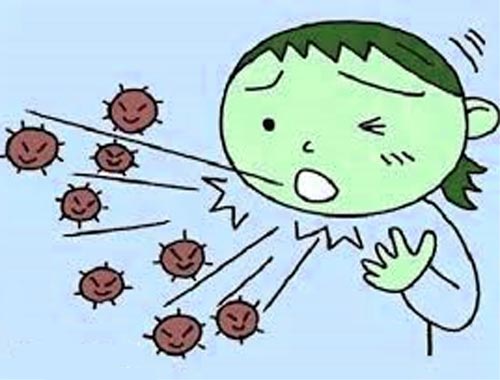Pertussis

Published: 18 Jun 2025
ICD9: 033 ICD10: A37.01 ICD11: 1C12.Z
Pertussis, commonly known as whooping cough, is a highly contagious respiratory infection caused by the bacterium *Bordetella pertussis*.
Here's a breakdown of what you need to know:
![]() Cause: The bacterium *Bordetella pertussis* infects the lining of the respiratory system, including the nose, throat, and lungs.
Cause: The bacterium *Bordetella pertussis* infects the lining of the respiratory system, including the nose, throat, and lungs.
![]() Symptoms: The illness typically starts with mild cold-like symptoms, such as a runny nose, sneezing, and a mild cough. After one to two weeks, the cough becomes more severe and is characterized by rapid, violent coughing fits followed by a high-pitched "whoop" sound when the person tries to breathe in air. This "whoop" is more common in children. Other symptoms can include vomiting or exhaustion after coughing fits.
Symptoms: The illness typically starts with mild cold-like symptoms, such as a runny nose, sneezing, and a mild cough. After one to two weeks, the cough becomes more severe and is characterized by rapid, violent coughing fits followed by a high-pitched "whoop" sound when the person tries to breathe in air. This "whoop" is more common in children. Other symptoms can include vomiting or exhaustion after coughing fits.
![]() Contagious: Pertussis is extremely contagious and spreads through respiratory droplets produced when an infected person coughs or sneezes.
Contagious: Pertussis is extremely contagious and spreads through respiratory droplets produced when an infected person coughs or sneezes.
![]() Severity: Pertussis can be particularly dangerous for infants and young children, potentially leading to serious complications such as pneumonia, seizures, brain damage, and even death. Adolescents and adults can also get pertussis, although symptoms are usually milder.
Severity: Pertussis can be particularly dangerous for infants and young children, potentially leading to serious complications such as pneumonia, seizures, brain damage, and even death. Adolescents and adults can also get pertussis, although symptoms are usually milder.
![]() Prevention: Vaccination is the best way to prevent pertussis. The DTaP vaccine is given to children as a series of shots, and a booster vaccine (Tdap) is recommended for adolescents and adults. Pregnant women are also advised to get the Tdap vaccine to protect their newborns.
Prevention: Vaccination is the best way to prevent pertussis. The DTaP vaccine is given to children as a series of shots, and a booster vaccine (Tdap) is recommended for adolescents and adults. Pregnant women are also advised to get the Tdap vaccine to protect their newborns.
![]() Treatment: Pertussis is typically treated with antibiotics, which can help reduce the severity and spread of the infection. Early treatment is important, especially for infants and young children. Supportive care, such as ensuring adequate hydration and nutrition, is also essential.
Treatment: Pertussis is typically treated with antibiotics, which can help reduce the severity and spread of the infection. Early treatment is important, especially for infants and young children. Supportive care, such as ensuring adequate hydration and nutrition, is also essential.
In summary, pertussis (whooping cough) is a serious respiratory infection that can be prevented through vaccination and treated with antibiotics. Because it can be very dangerous, especially for infants, it's important to be aware of the symptoms and seek medical attention if you suspect you or someone you know may have pertussis.